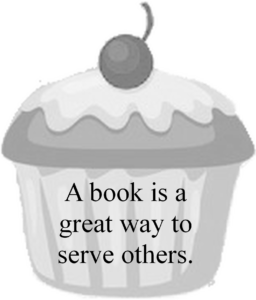Virtual coworking spaces, often called online coworking spaces, are often the best and most viable option for writers and authors as well as others who work from home or are digital nomads. These spaces offer a range of benefits, from providing a sense of community to boosting productivity. In this article, we’ll explore some of the benefits of virtual coworking spaces, particularly for writers and authors.
For writers seeking an environment conducive to productivity and collaboration, virtual coworking spaces are a dream come true. Gone are the days when writers were confined to traditional office spaces or isolated in the solitude of their homes. Virtual coworking spaces provide a dynamic and flexible solution that empowers writers to maximize their output, tap into a supportive community, and cultivate a productive work routine. In this article, we will explore why virtual coworking spaces are the best option for writers looking to enhance their creativity and boost their productivity.
Community or body doubles
Writing can be a solitary pursuit, but that doesn’t mean you have to go it alone. Virtual coworking spaces can connect you with other writers and authors who share your passion for the written word. These spaces can be especially helpful for people who work from home and may feel isolated.
Feelings of isolation can lead to stagnation. Virtual coworking spaces offer a remedy by fostering a sense of belonging to a larger community. Writers can connect with like-minded individuals, share experiences, and engage in meaningful discussions. This virtual company helps combat the loneliness often associated with writing and creates an environment of mutual support and encouragement.
Some people refer to having company while you work as “having a body double.” By joining a virtual/online coworking space, you can connect with like-minded individuals and foster a sense of camaraderie.
Enhanced Focus and Accountability
Working from home can present numerous distractions, from household chores to familial obligations. Virtual coworking spaces provide a structured setting that encourages focused work. Knowing that others are working alongside you in a virtual space boosts accountability and motivates writers to stay on track. With designated work hours and regular check-ins, writers can overcome procrastination and stay committed to their goals, such as writing their first draft in 12 weeks.
One of the challenges of being a writer is holding yourself accountable. With no boss or colleagues to keep you on track, it can be easy to get sidetracked or procrastinate. Virtual/online coworking spaces can help with this. By scheduling specific times to work and checking in with others in the space, you can hold yourself accountable and stay focused on your writing goals.
Productivity
Distractions are a common problem for writers, particularly those who work from home. Virtual/online coworking spaces can help eliminate distractions and boost productivity. These spaces typically offer quiet, designated work areas and a structured schedule, which can help you stay on task and get more done.

Inspiration and Collaboration
Virtual coworking spaces enable writers to tap into a diverse range of talents and perspectives. The shared environment stimulates creative thinking and inspires fresh ideas. Writers can engage in informal discussions and brainstorming sessions or seek feedback on their work. Collaborative opportunities arise, leading to new projects, partnerships, and potential breakthroughs. The collective wisdom and experience within a virtual coworking space provide invaluable resources for writers to expand their horizons.
Flexibility and Work-Life Balance
One of the greatest advantages of virtual coworking spaces is the flexibility they offer. Writers can craft their schedules according to their preferences, allowing them to work during their most productive hours. Whether it’s early mornings or late nights, virtual coworking spaces accommodate diverse work routines. This flexibility promotes a healthier work-life balance, enabling writers to pursue personal interests, engage in self-care, or spend quality time with loved ones, without compromising their professional aspirations.
Global Reach and Networking Opportunities
Geographical barriers become irrelevant in virtual coworking spaces. Writers can connect with professionals from around the world, expanding their network and broadening their horizons. The exposure to diverse cultures and perspectives fosters global understanding, enriching the creative process. Additionally, virtual coworking spaces often organize webinars, workshops, and networking events, providing opportunities for skill development, industry insights, and potential collaborations.
Flexibility
Virtual/online coworking spaces offer a level of flexibility that traditional coworking spaces cannot. With no physical location to visit, you can work from anywhere with an internet connection. This can be especially beneficial for writers who travel frequently or work irregular hours. Additionally, virtual/online coworking spaces often offer different membership levels and pricing plans, allowing you to choose the option that works best for your needs and budget.
Professional Development
Many virtual/online coworking spaces offer opportunities for professional development, such as workshops, webinars, and networking events. These can be particularly helpful for writers looking to hone their craft or learn more about the publishing industry. By joining a virtual/online coworking space, you can tap into a network of experts and resources that can help you grow as a writer.
In conclusion, virtual/online coworking spaces offer a range of benefits for writers and authors. By providing a sense of community, accountability, and productivity, along with the flexibility to work from anywhere, these spaces can help you achieve your writing goals. Additionally, virtual/online coworking spaces offer opportunities for professional development, which can be particularly valuable for writers looking to advance their careers. If you’re a writer looking to boost your productivity and connect with other like-minded individuals, consider joining this extremely affordable virtual coworking space today.







